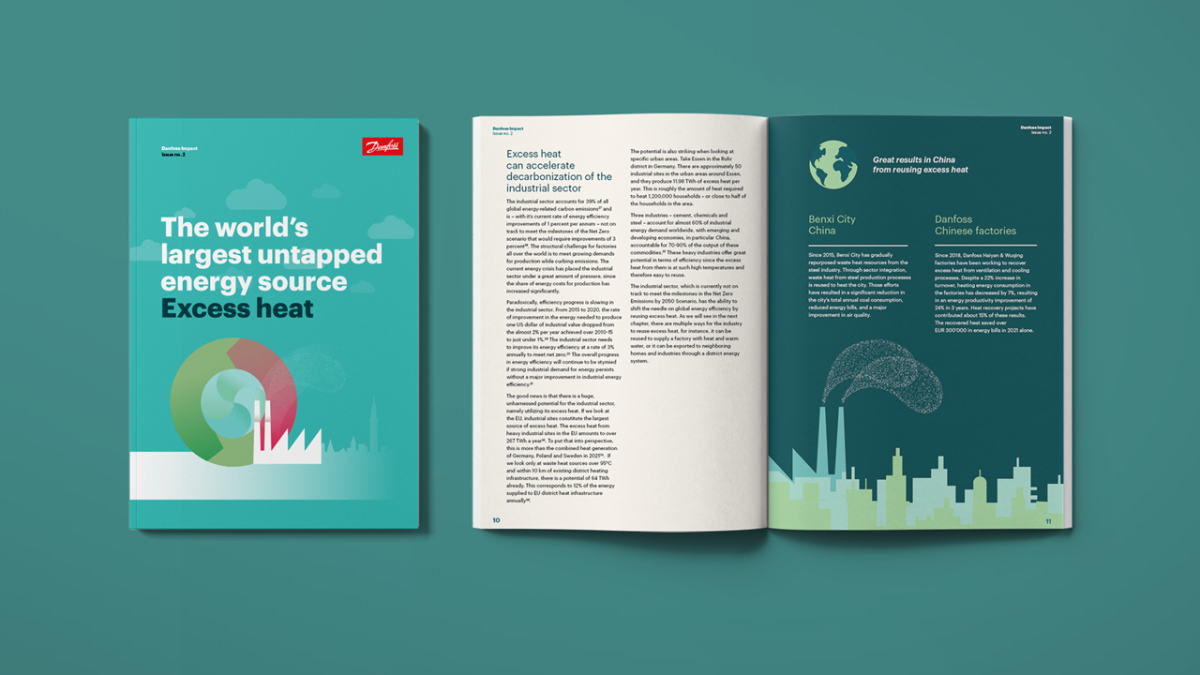
It’s no shocking new that excess heat represents Earth’s single largest pool of energy. South Africa is ideally positioned to exploit this renewable source of energy.
According to new data, says Danfoss, the Danish family-controlled engineering group, excess heat in the EU as an example alone amounts to 2,860 TWh/y. This corresponds almost to the EU’s total energy demand for heat and hot water in residential and service sector buildings buildings such as schools, hospitals, hotels, restaurants, offices and shopping centres.
Kim Fausing, Danfoss president and chief executive, confirms the remarkable fact that the EU has “close to no initiatives that push for more efficient use of the vast amounts of wasted energy in the form of excess heat.” Much the same applies to the rest of the world, including South Africa. However, he points out that a new Danfoss whitepaper details how it would give a productivity boost to the economy, lower energy prices for consumers and businesses and accelerate the green transition.
The whitepaper, titled ‘The world’s largest untapped energy source: Excess heat’ assesses the potential of excess heat as an efficient energy source. A full implementation of technologies that tap into synergies between different sectors and enable a utilisation of excess heat has the potential to save EUR 67.4 billion a year once fully implemented in 2050.
The paper points out how, every time an engine runs, it generates heat. The same is true on a larger scale in supermarkets, data centres, factories, wastewater facilities, metro stations and commercial buildings. Excess heat can be reused to supply a factory with heat and warm water or reused by neighbouring homes and industries through a district energy system.
Reusing excess heat is energy efficiency in its purest form
“Catalysing sustainable growth in Sub-Saharan Africa is crucial for the region’s economic and social development. The latest Danfoss white paper on excess heat provides a roadmap for Africa to harness untapped potential in energy recovery and pave the way for a cleaner, more efficient future. By prioritising the implementation of innovative solutions outlined in this paper, Africa can lead the charge in reducing energy waste, improving industrial competitiveness, and creating new opportunities for economic growth,” says Emil Berning, Danfoss Country Manager, Sub-Saharan Africa.

Using this energy that would otherwise go to waste can give a productivity boost to the economy and lower energy prices for consumers.
Utilising excess heat can replace significant amounts of fossil fuels that are otherwise needed to produce heat. Used this way, excess heat can help stabilise the future electricity grid and thereby ease the transition to a green energy system.
In some countries the excess heat can even match the entire heat demand. In the Netherlands, excess heat amounts to 156 TWh/y while the heat demand is only 152 TWh/y.
Yet the potential of excess heat is not even close to being utilised and is politically ignored. According to Fausing, recycling heat is not only an overlooked measure in the current energy crisis, but also the next frontier of the green transition:
“Excess heat is the world’s largest untapped source of energy. Still, very few initiatives have pushed for more efficient use of the vast amounts of wasted energy in the form of excess heat even though we already have the solutions available today. We urgently need policy measures to accelerate the use of excess heat across sectors, both so that citizens and businesses can benefit from lower energy costs and to ensure we step up progress in the green transition.”
“Energy demand is set to grow dramatically in the years to come due to population growth and rising incomes. Without urgent action to tackle the demand side of the green equation, using every single unit of energy more efficiently, we will not get on track to meet global climate goals,” Fausing adds.
“The potential in reusing excess heat is staggering. But we need to change our perspective on it and begin to consider excess heat as an energy resource instead of waste to be disposed of,” adds Fausing.
“Today there are a number of barriers that prevent us from reusing excess heat including lack of information and regulation. We have to introduce economic incentives, policy measures and prioritisation of partnerships between local authorities, energy suppliers and energy sources to help maximise the full potential of excess heat.”

